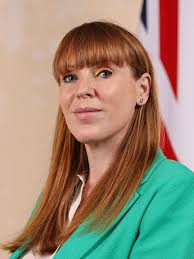The Political Journey of Angela Rayner

Introduction
Angela Rayner has emerged as a prominent figure in UK politics, particularly within the Labour Party. As the current Deputy Leader, her influence has grown significantly since her election as the Member of Parliament (MP) for Ashton-under-Lyne in 2015. Understanding her political journey is crucial, especially as the UK faces various challenges in a post-pandemic environment and amidst shifting voter priorities.
Angela Rayner’s Background
Born on March 28, 1980, Angela Rayner grew up in a working-class family in Stockport, Greater Manchester. Beyond her political acumen, she is noted for her relatable background, having once worked as a care worker and in the education sector before entering politics. This experience provides her with a unique perspective on social issues, making her a relatable figure for many constituents.
Rise in Politics
Rayner first entered the political spotlight when she was elected as an MP in the 2015 general election. Quickly rising through the ranks, she was appointed shadow education secretary in 2016, where she advocated for reforms in the education system, focusing on fair funding and access to resources for disadvantaged communities. Her tenure in this role showcased her commitment to social justice, a theme that resonates deeply with Labour’s traditional base.
Deputy Leadership and Current Role
In 2020, Angela Rayner was elected Deputy Leader of the Labour Party alongside Leader Keir Starmer. In her role, she has been instrumental in shaping the party’s strategy, particularly in a challenging political landscape following the disappointing results of the 2019 general election. Her focus has been on advocating for workers’ rights, education reform, and gender equality, all while addressing the pressing issues arising from Brexit and the COVID-19 pandemic.
Current Events and Future Outlook
As of late 2023, Angela Rayner continues to be a key figure within the Labour Party, actively engaging with voters and addressing local concerns while also being a vocal critic of the Conservative government’s policies. Recent party conferences and public appearances reflect her dedication to reinforcing Labour’s message, especially in light of the upcoming elections. Analysts suggest that Rayner’s grassroots campaigning style and authentic connection with the electorate may give Labour a strong position heading into the next election cycle.
Conclusion
Angela Rayner’s political journey highlights her resilience and commitment to social justice and equality. As part of a renewed Labour leadership, she will likely continue to shape party policy and engage with the public, making her an essential figure to watch in UK politics. Her ability to connect with working-class voters and advocate for marginalized communities may prove pivotal for the Labour Party’s future prospects.








